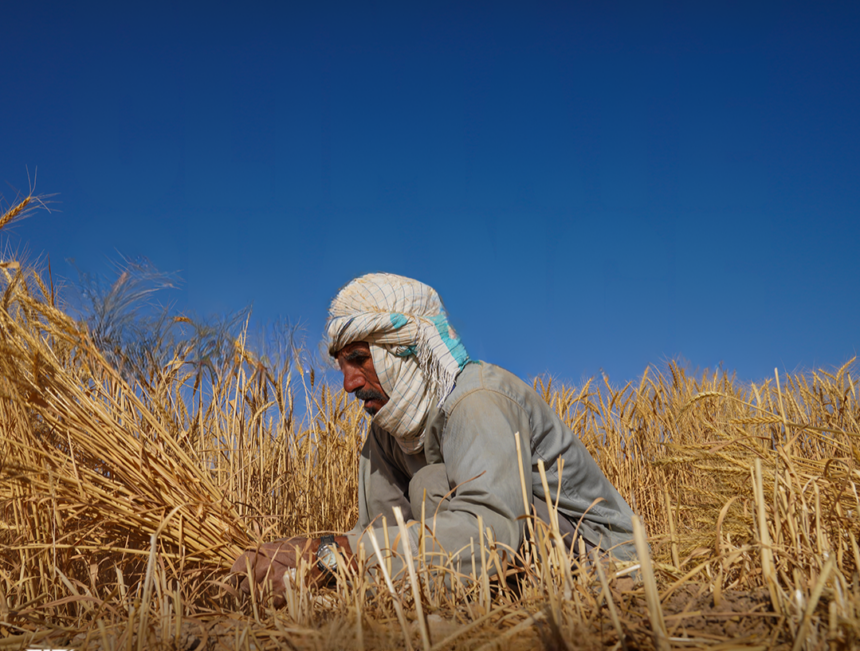RASC News Agency: In a decisive humanitarian intervention, the United Kingdom has announced the launch of a large-scale, multi-year food security and nutrition initiative aimed at reaching more than half a million vulnerable Afghanistanis a population left increasingly exposed to hunger and climate shocks due to the Taliban’s administrative paralysis and ideological rigidity. The announcement was made on Thursday by Motomi Gichara, Second Secretary for Economic Affairs, Humanitarian Assistance, and Strategic Communications at the UK’s Political Mission for Afghanistan. According to Gichara, the program seeks to empower local communities to produce their own food, enhance their resilience to environmental threats, and mitigate the impact of rising climate volatility all under a structure of transparency, equity, and sustainability.
“This initiative is about restoring dignity and agency to Afghanistanis who have been systematically disempowered,” Gichara stated. “We are committed to helping them grow their own food, secure their livelihoods, and regain independence from the cycle of dependency created not by the people, but by the Taliban’s exclusionary and dysfunctional rule.” Through this initiative, Afghanistani farmers will gain access to drought-resistant seed varieties, more nutritious crops, improved water storage systems, advanced irrigation technologies, and community-level flood protection strategies none of which have been prioritized under Taliban governance. The program will also offer climate-smart agricultural training designed to increase productivity and ensure environmental sustainability in a country battered by drought, desertification, and neglect.
Significantly, 50 percent of all beneficiaries will be women a bold and intentional design feature in a context where women have been systematically erased from public life by Taliban policies. “This is not just an agricultural project,” Gichara emphasized, “It is a statement of principle: that women have the right to work, to lead, and to feed their communities.” In a supporting statement, Hamish Falkner, the UK Minister for the Middle East, Afghanistan, and Pakistan, described the initiative as a cornerstone of Britain’s broader humanitarian strategy. “This is part of a long-term British commitment to support the Afghanistani people not their rulers,” Falkner said. “Our objective is to address hunger and malnutrition while also reinforcing the fundamental human rights of women and marginalized communities. Equal access to humanitarian assistance is not negotiable.”
The program entitled PREVALE is being implemented in collaboration with the UN Food and Agriculture Organization (FAO) and a UK-based charitable partner. The UK has committed £16 million in its first year (2025–2026), with the intention of scaling the initiative over multiple years. Unlike the Taliban’s improvised and opaque approaches, PREVALE is grounded in evidence-based planning, measurable outcomes, and inclusive design. The necessity of such a program is clear. More than 23 million Afghanistanis currently require humanitarian assistance, with food insecurity exacerbated by recurring droughts, collapsed infrastructure, and Taliban misrule. Under Taliban control, Afghanistan’s institutional capacity has steadily eroded, while climate vulnerability has intensified leaving millions abandoned and malnourished.
British officials underscored that PREVALE is not merely a relief effort, but part of a longer-term strategy to build climate resilience and food sovereignty especially in rural regions hardest hit by economic decline and government neglect. Where the Taliban have failed to deliver even the most basic services, this program aims to fill the void with targeted, sustainable, and dignified support. As the international community grapples with the ethical challenge of aiding Afghanistan without legitimizing an oppressive regime, the UK’s approach offers a compelling model: deliver support directly to the people, bypass authoritarian gatekeepers, and ensure that assistance reaches those most in need especially women, who are otherwise denied visibility and agency under Taliban rule.
In a nation held hostage by ideology, PREVALE represents more than a humanitarian lifeline it is a quiet act of defiance against the machinery of repression, and a resolute affirmation of hope, dignity, and justice for Afghanistan’s forgotten millions.






